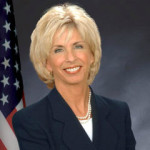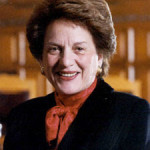On Thursday, January 21st, 2016, Janet DiFiore, former Westchester County District Attorney, was confirmed by the New York State Senate as the second female Chief Judge for the New York Court of Appeals, the highest court in New York State. The chief judge of the Court of Appeals is also head of the New York State Court system. Ms. DiFiore was nominated for this position by Judge Andrew Cuomo in December 2015.
Judge DiFiore was originally elected as Westchester County District Attorney in 2005 and then re-elected in 2009 and 2013. She has been a strong advocate for those who are affected by both child and elder abuse, forming teams within her office to deal with these issues.
She has been a strong advocate of reviewing what could be possible wrongful convictions, and her office was able to overturn the conviction, based on a new DNA analysis of crime scene evidence, in the case of Jeffrey Deskovic, who had been wrongly convicted of the rape and murder of a high school classmate.
Ms. DiFiore led the effort to establish the Westchester Intelligence Center, where Westchester County’s many local police departments, county police, state police and other state, regional and federal law enforcement agencies share information.
Prior to becoming Westchester County District Attorney she was a Supreme Court Justice from 2003-2005 and a Westchester County Court Judge from 1998-2002.
On January 7, 2016, Judge Judith Kaye, the first female Chief Judge for the New York Court of Appeals died after a courageous bout with cancer.
Judge Kaye was initially nominated to the position of associate judge by Governor Mario Cuomo in 1983 and she served in that position until 1993 when Chief Judge Sol Wachtler resigned and Cuomo appointed Judith Kaye as Chief Judge. She served in that position until December 31, 2008, when she reached the mandatory retirement age of seventy. She was not only the first female chief judge of the state of New York, but also the longest-serving chief judge.
During her many years on the court she worked hard to address problems on many fronts, but one of her primary concerns was improvement in the New York State jury system and she worked to change what she saw as problems in the system. She was able to end automatic exemptions for certain groups so that more people would be available to serve and she also recommended the expansion of juror source lists to include unemployment and other lists that were not previously used. She also had brochures and pamphlets developed for potential jurors so that they could understand the juror selection process and the work of a jury. She also sought to improve courthouse facilities so that jurors would at least have a pleasant place to “serve their time.”
Judge Kaye led in the development of problem-solving courts that seek to address the underlying problems that brought people into the court system. There are now courts that deal specifically with with drug, mental health and sex abuse issues as examples.
Judge Kaye received many honors and awards during her lifetime, as well as many honorary degrees. At Brooklyn Law School’s 93rd commencement exercise on June 14, 1994, Judge Kaye was awarded an honorary degree and gave the commencement address. At the end of her remarks, I’ll always remember her telling the graduates that she wished them “the same good luck and good sense in the future” as had gotten them to this day. Spoken, I thought, like a wise judge, woman and mother.
The library has several books in its collection on the New York Court of Appeals, including:
The Judges of the New York Court of Appeals: A Biographical History
The History of the New York Court of Appeals
The Powers of the New York Court of Appeals


